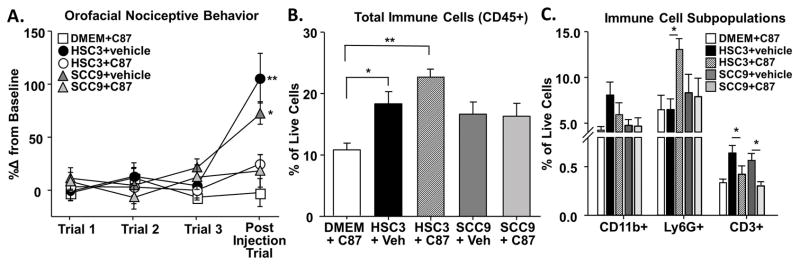Figure 12. Removing TNFα from oral cancer cell line supernatant abolished functional allodynia.
TNFα inhibitor (C87) was used to inhibit TNFα signaling in the presence of oral cancer cell line supernatant. We used the acute cell line supernatant model described in Figure 1 during which mice received 3 consecutive injections of either oral cancer cell line supernatant, HSC3 or SCC9, alone or in a co-injection with C87. Pooled data (B) indicate that C87 alone (C87+DMEM, white square) does not affect gnawing behavior. However, HSC3 (black circle) and SCC9 (gray triangle) containing 0.02% DMSO (HSC3+vehicle and SCC9+vehicle, respectively) evoked a significant increase in gnaw time. Co-administration of C87 with HSC3 (HSC3+C87, white circle, n = 5) or SCC9 (SCC9+C87, white triangle, n = 5) abolished the oral cancer cell line supernatant-induced pain behavior. Flow cytometry on the tongue tissue from these mice was used to measure the inflammatory infiltrate. B) C87+DMEM had no effect on the percent of CD45+ immune cells in the tongue compared to oral cancer cell line supernatant alone (HSC3+veh, SCC9+veh). However, within the Cd45+ immune cell subpopulations (C) there was a significant increase in the neutrophils (Ly6G+) in response to HSC3+C87 co-injection compared to HSC3+vehicle. Co-injection of C87 with either HSC3 or SCC9 also resulted in a significant decrease in T cells (CD3+) compared to HSC3+vehicle or SCC9+vehicle respectively (One-way ANOVA, * p<0.05).

